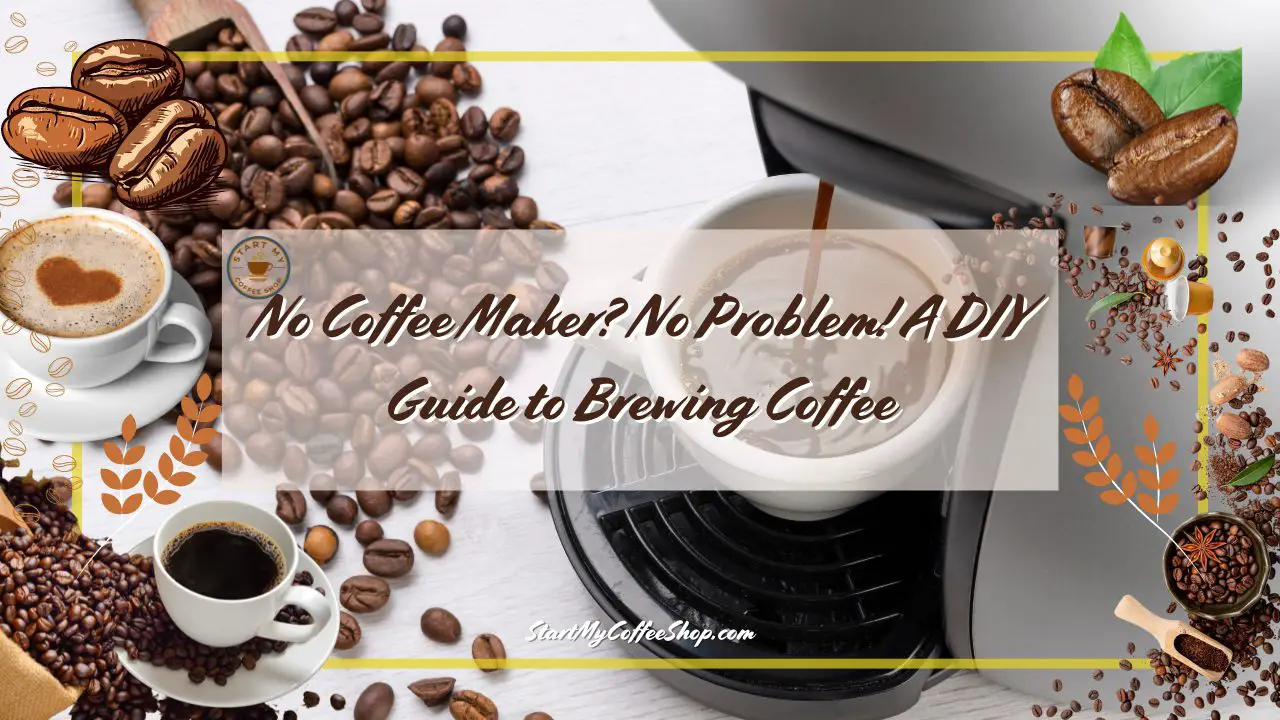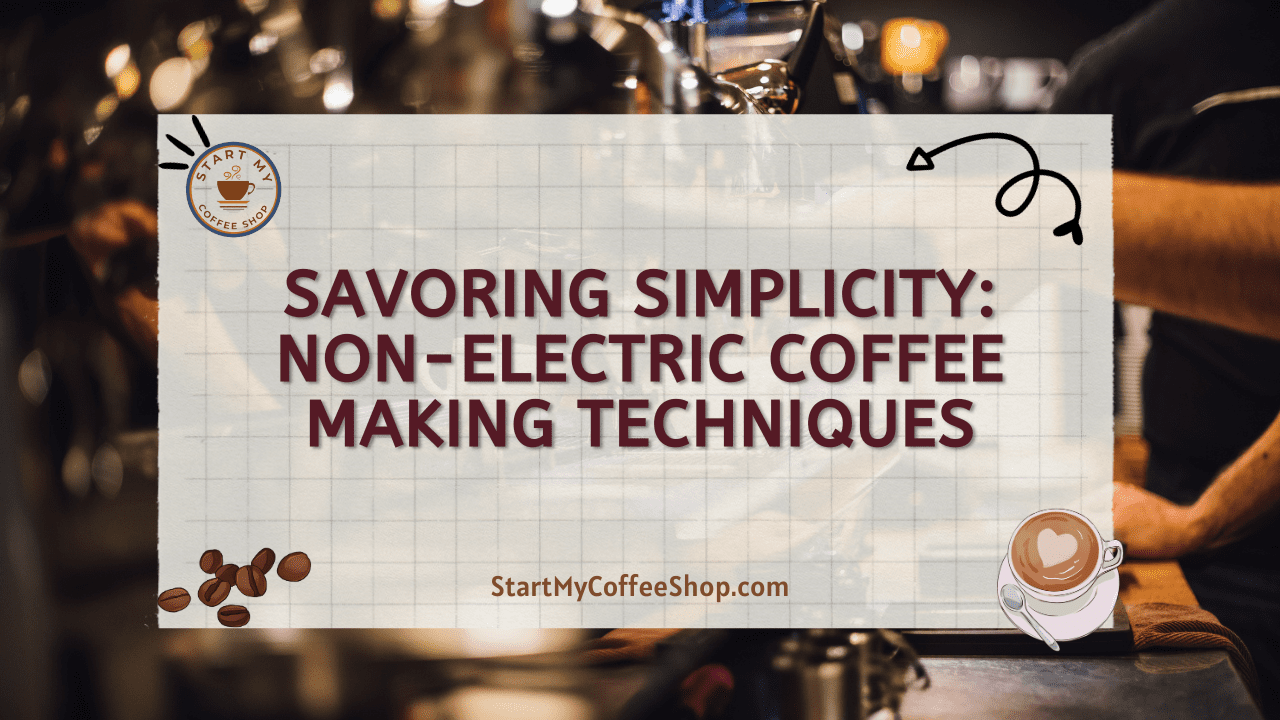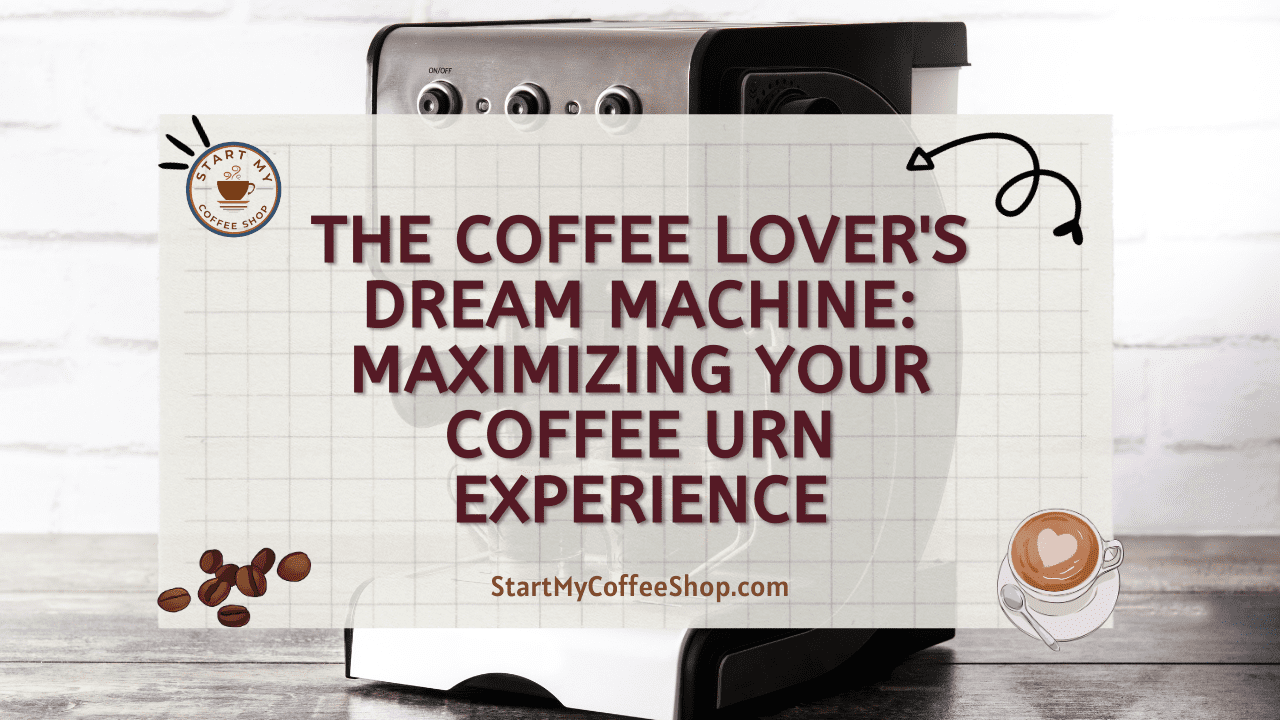I know how important it is to pick the right espresso machine for my business because I own a coffee shop. First, I learn about the specific needs of my coffee shop. I think about how many people I serve every day, the drinks I offer, and how much money I have to spend. For example, if I have a lot of foot activity, I need a commercial-grade machine that can keep up with that type of traffic and demand. On the other hand a smaller espresso machine might be enough for a small boutique shop.
I recommend thoroughly testing various espresso machines to ensure they meet your specific needs in terms of capacity, cleaning, budget, and brand reputation before finalizing your decision for your coffee shop.
Besides that, I think about how skilled my baristas are. Some machines are easier to use and don’t need as much training, while others have more advanced features that are better suited for pros. By matching the machine’s features to my unique needs, I make sure that everything runs smoothly and that customers are happy.
- Consider volume: Choose a machine that can handle the volume of coffee your shop expects to serve daily.
- Focus on features: Look for machines with features like multiple group heads, programmable settings, and steam wands for frothing milk.
- Quality vs. budget: Balance between your budget and the quality of the machine. Investing in a durable, high-quality machine can save money in the long run.
- Ease of maintenance: Opt for machines with easy-to-clean components and accessible parts for maintenance and repairs.
- Brand reputation: Research brands are known for reliability, customer support, and availability of spare parts to ensure long-term satisfaction with your espresso machine choice.
Types of Espresso Machines
There are different kinds of espresso makers, each with its features and ways of making coffee. These types have helped me narrow down my choices and pick the best one for my coffee shop. Traditional, automatic, semi-automatic, and super-automatic machines are the most popular types.
I’ve found that traditional espresso machines, which are also called “manual machines,” need to be controlled by hand during the brewing process. This makes them perfect for skilled baristas who want accuracy and control. Automatic tools, on the other hand, do the brewing for you, which makes it easier to use and more consistent. Semi-automatic tools are a good mix of manual control and automation because they let you make changes while also speeding up work. With the push of a button, super-automatic machines can do everything from grinding to foaming milk, making them great for places like mine that serve a lot of people.
Features to Consider
When picking out an espresso machine for my coffee shop, I’ve learned to carefully look at all of its features. These features can have a big effect on the quality of my espresso, how well my business runs, and how my customers feel about their general experience. Some important things to think about are the type of boiler, the group heads, the usefulness of the steam wand, the ability to program, and the durability.
I learned that the type of boiler decides how the machine heats up, how well it works, and how long it takes to recover. Single boiler machines are cheaper, but they take longer to recover. Dual boiler machines, on the other hand, can brew and steam at the same time, which is great for places like mine that handle a lot of coffee. Group heads tell me how many espresso shots the machine can make at once, which affects my output capacity. The steam wand feature is important for getting the right milk texture for lattes and espressos, and the ability to set the machine lets you make drinks consistently and in your way. To make sure things last a long time and have a little downtime, I put sturdiness and dependability at the top of my list.
Budget Considerations
Keeping prices under control is important for my coffee shop to stay profitable. When buying an espresso machine, I’ve learned to find a machine that is both good quality and not too expensive. I make a budget that is reasonable for my business based on its long-term goals and cash situation. I remember that the machine’s initial cost is only one part of the total investment. I also need to think about the cost of repairs, upkeep, and energy use over time.
It’s tempting to choose the cheapest choice, but I’ve learned that skimping on quality can make my coffee taste and be inconsistent, which can make customers unhappy and less likely to buy from me again. Value for money is what I care about, so I compare the features and performance of each machine to how much it costs. To help my business’s finances, I look into financing or leasing choices that let me spread out the cost over time.
Brand Reputation and Support
When I buy an espresso machine for my coffee shop, I make sure to think about the manufacturer’s or brand’s image and the help they offer. When I’m looking for reliability, quality, and access to full customer support and service, I choose a well-known name with a history of success in the field.
I look into the different brands and read customer reviews, comments, and warranties to get an idea of how reliable they are and how happy their customers are. I also think about things like how easy it is to get replacement parts, how good the technical help is, and how good the training programs are for my staff. A trustworthy brand not only sells high-quality goods but also backs them up with strong customer service, which helps me deal with any problems that may come up.
Test and Evaluate Before Committing
Before I make a final choice, I think it’s important to test and analyze the espresso machine to make sure it meets my needs and expectations. Many manufacturers give trials or demonstrations where I can see how well the machine works and judge how easy it is to use, the quality of the drinks it makes, and its overall functionality.
My baristas and other staff members help me test the machine so that I can get feedback and ideas from people who will be using it every day. To figure out how well the machine fits into my operations and routine, I look at things like speed, consistency, noise level, and ergonomics. I also do a cost-benefit analysis to see how much the machine will earn me back and how well it will work for my coffee shop in the long run.
Pros
- Enhanced Customer Experience: Investing in the best espresso machine ensures consistency and quality in every cup of coffee, leading to a superior customer experience and increased customer satisfaction and loyalty.
- Improved Operational Efficiency: Selecting the right espresso machine can streamline operations in your coffee shop, reducing wait times, minimizing errors, and optimizing workflow, ultimately boosting productivity and profitability.
- Long-Term Cost Savings: While the initial investment may seem significant, choosing a high-quality espresso machine with durable components can result in long-term cost savings by minimizing maintenance and repair expenses, as well as reducing energy consumption.
Cons
- Upfront Cost: The initial investment required to purchase the best espresso machine for your coffee shop can be substantial, potentially straining your budget and limiting other areas of investment or expansion in your business.
- Technical Complexity: Some advanced espresso machines may require specialized training or technical expertise to operate and maintain properly, leading to increased training costs and potential challenges in staffing and skill development.
- Limited Flexibility: Depending on your budget and space constraints, you may be limited in the selection of espresso machines available, potentially compromising on certain features or capabilities that could enhance your coffee shop’s offerings and competitiveness.
Conclusion
For me, picking the best espresso machine for my coffee shop has been a process of careful thought and review. It’s been important for me to understand what my coffee shop needs. I learned about the different kinds of espresso machines and put features like boiler type, group heads, and reliability at the top of my list. This helped me make smart choices that fit my business goals and budget. Taking into account the manufacturer or brand’s reputation and support, as well as testing and evaluating the machine before committing, has also helped make the transition go smoothly and guaranteed that it works perfectly in my coffee shop’s daily operations.
The espresso machine is more than just a piece of tools for me; it’s the heart of my coffee shop. It has a huge effect on the quality of my drinks and the experience of my customers as a whole. By putting time and effort into finding the right machine, I’ve been able to make my customers happy with every sip and help my coffee shop grow and last. If you want to buy an espresso machine that fits your needs and helps your business grow, whether you’re a seasoned cafe owner like me or a new business owner starting, I suggest you follow these tips.
To learn more on how to start your coffee shop, check out my startup documents here.
Disclaimer: The information provided by StartMyCoffeeShop.com (“The Site”) is for general informational purposes only. All information on the Site is provided in good faith. However, we make no representation or warranty of any kind, express or implied, regarding the accuracy, adequacy, validity, reliability, availability, or completeness of any information on the Site. Under no circumstance shall we have any liability to you for any loss or damage of any kind incurred as a result of the use of the Site or Reliance on any information provided on the Site. Your use of the Site and reliance on any information on the Site is solely at your own risk. This blog post is for educational purposes only and does not constitute legal advice. Please consult a legal expert to address your specific needs. Terms and Conditions.

Hi! I’m Shawn Chun
My adventure in coffee began when I first launched my first coffee shop back in the early 2000s. I had to figure out so many things on my own and to make it worse within 2 years of opening two large corporate coffee chains moved in just blocks away from me!
As I saw smaller and even some larger coffee shops in the neighborhood slowly lose customers to these giant coffee chains and slowly close up shop, I knew that I had to start getting creative…or go out of business.
I (like you may be) knew the coffee industry well. I could make the best latte art around and the foam on my caps was the fluffiest you have ever seen. I even had the best state-of-the-art 2 group digital Nuova Simonelli machine money could buy. But I knew that these things alone would not be enough to lure customers away from the name brand established coffee shops.
Eventually, through lots of trial and error as well as perseverance and creativity I did find a way to not only survive but also thrive in the coffee/espresso industry even while those corporate coffee chains stayed put. During those years I learned to adapt and always faced new challenges. It was not always easy, however, in the end, I was the sole survivor independent coffee shop within a 10-mile radius of my location. Just two corporate coffee chains and I were left after that year. All told the corporate coffee chains took down over 15 small independent coffee shops and kiosks and I was the last one standing and thriving.
Along the years I meet others with the same passion for coffee and I quickly learned that it is not only “how good a barista is” that makes a coffee shop successful, but the business side of coffee as well.
Hence why I started this website you are on now. To provide the tools and resources for up and coming coffee shop owners to gain that vital insight and knowledge on how to start a coffee shop successfully.
Stick around, browse through my helpful blog and resources and enjoy your stay! With lots of LATTE LOVE!
Shawn






